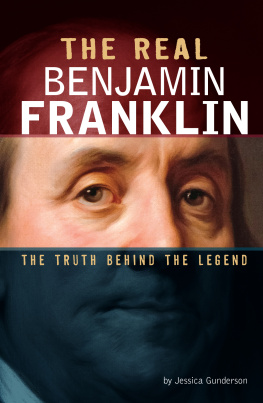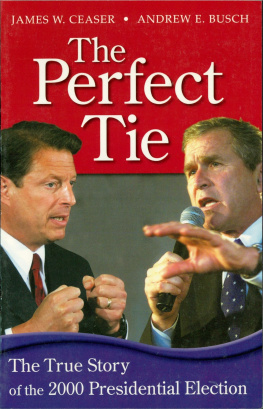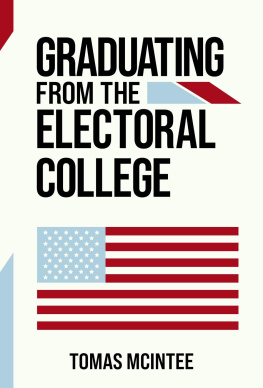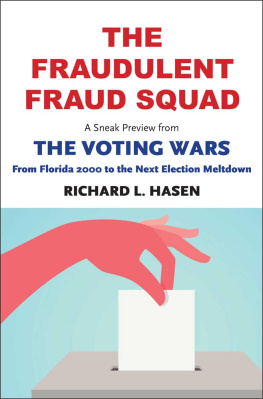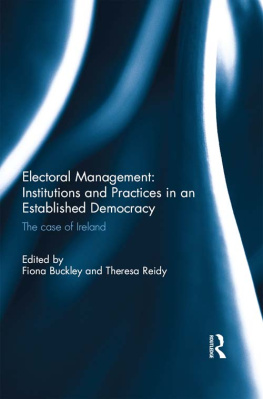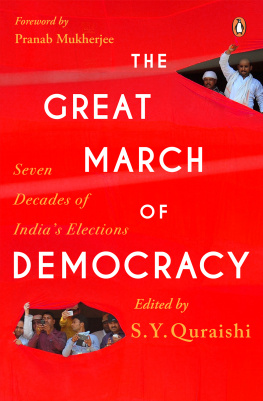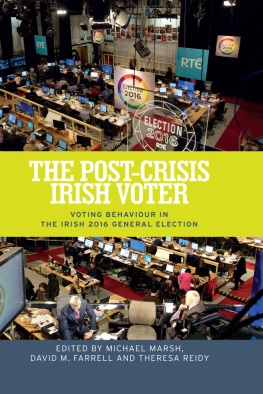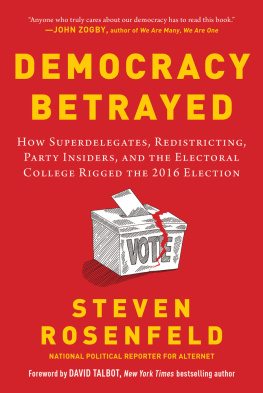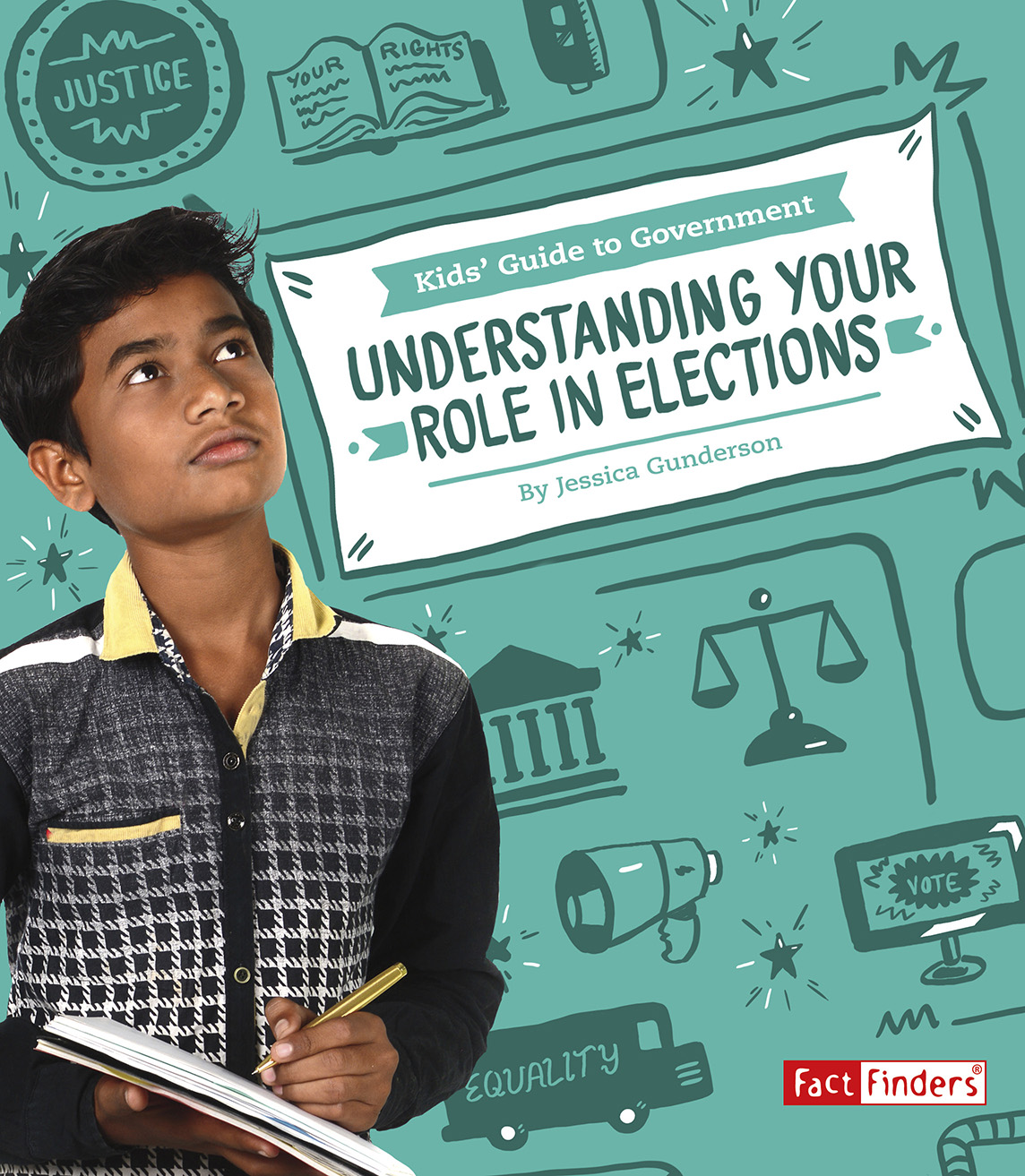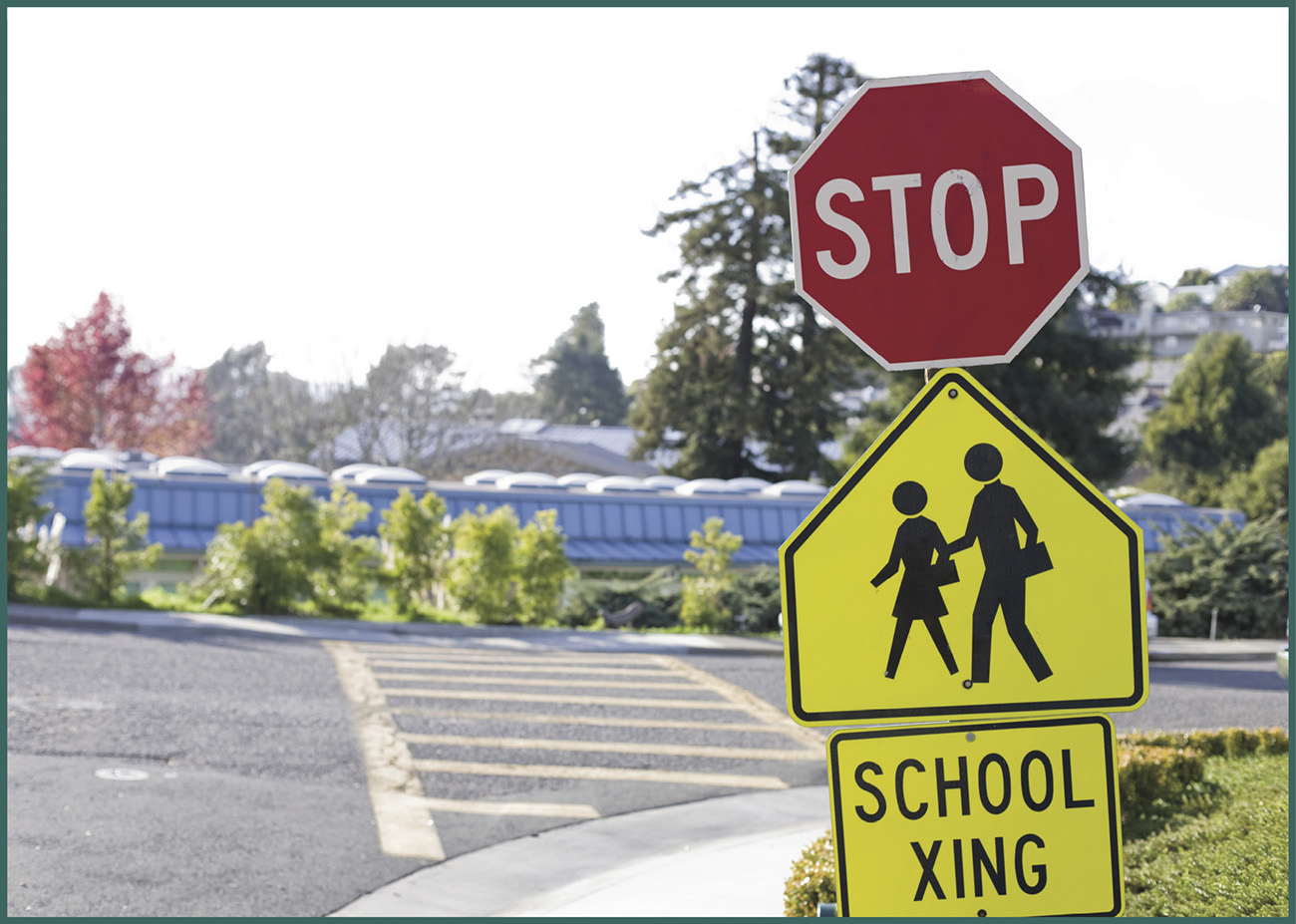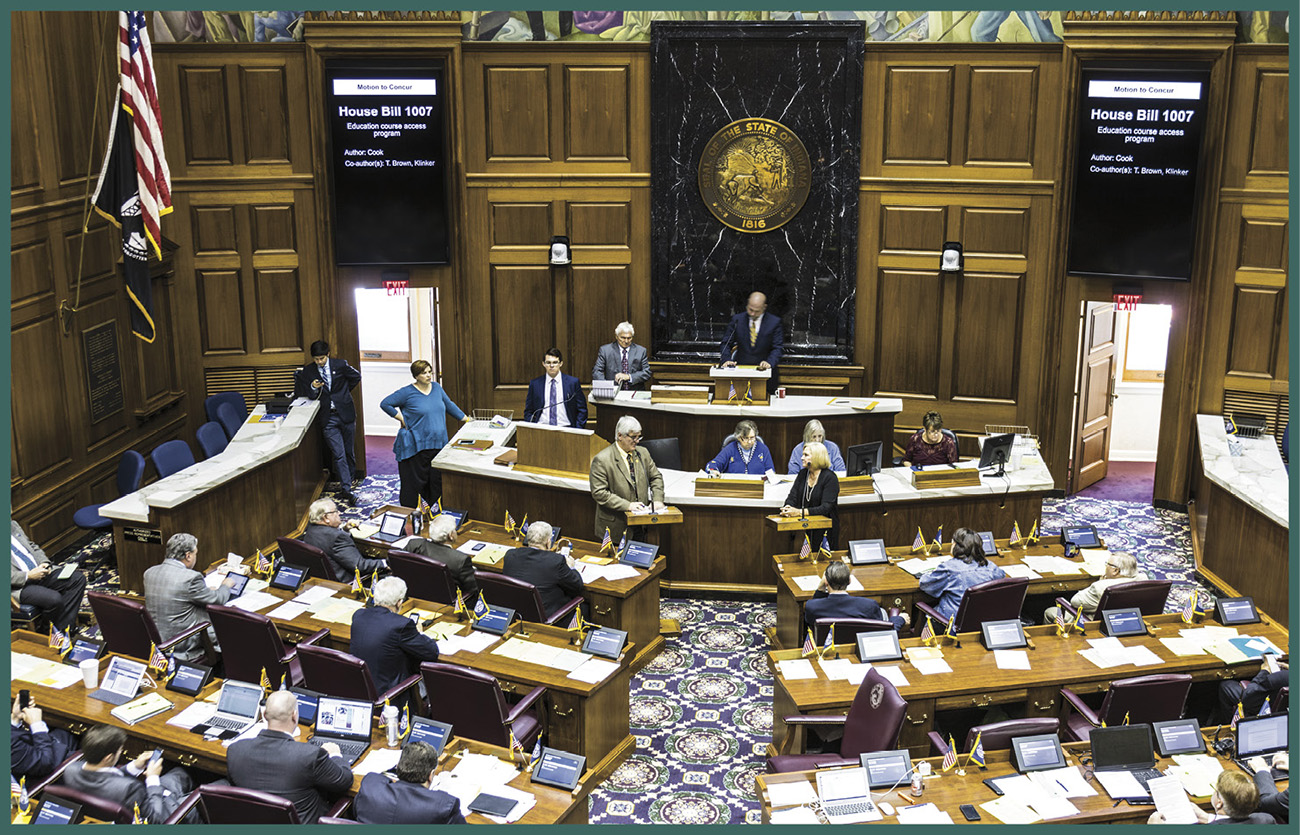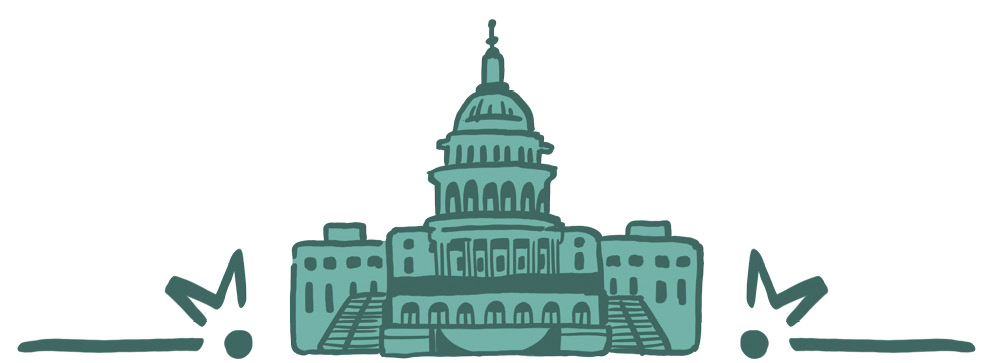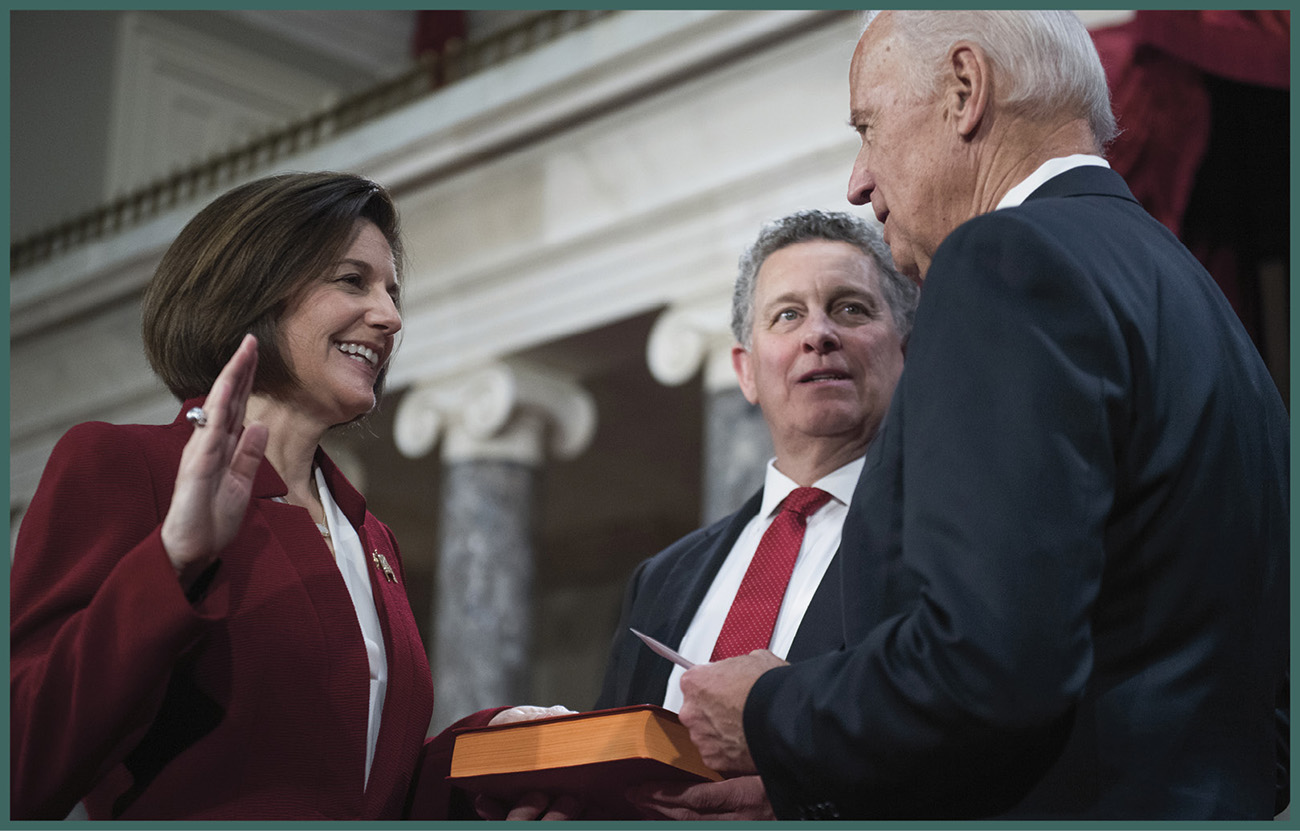Chapter 1
Why Voting Matters
Imagine yourself on a typical school day. Are the roads paved on your ride to school? What is the speed limit? Is there a crosswalk in front of your school? When you get to class, what subjects will you learn about? What will you eat for lunch? At the end of the day, what time do you go home?
Surprisingly, the answers to all of these questions have to do with voting. When people vote, they elect officials to make decisions for the community.
Elected officials or vote on laws, such as how fast or slow speed limits should be. They help decide how to spend the money collected from taxes. This money could be used to pave roads or add street signs near your school. Officials even help determine what subjects you will study and how long your school day will be. When people vote, they choose representatives who they think will make the right decisions for them. Voting matters!
The ThreeBranches of Government
The United States is a U.S. Constitution.
Indiana State House of Representatives in 2017
Legislative Branch
The legislative branch consists of the U.S. Congress. Members of Congress write and vote on laws. The U.S. Congress has two sections the . The higher a states population, the more representatives that state has.
Executive Branch
The executive branch is made up of the U.S. president and his or her cabinet. The president leads the country, commands our nations military, and makes sure our laws are followed. The cabinet includes the vice president and cabinet members. The president chooses his or her cabinet members. The Senate must approve the selected cabinet members. Cabinet members give the president advice based on their areas of expertise. For example, the Secretary of Education advises the president on matters related to schools and education.
Judicial Branch
The judicial branch consists of federal judges and Supreme Court justices. The Senate votes to approve the judges or justices that the president selects. Federal judges and Supreme Court justices hold their positions for life.
Which Branch Is the Strongest?
Which branch of government do you think is the strongest? The answer is none of them. Each branch keeps the balance of power.
To understand how this works, lets take a closer look at how a Constitution.
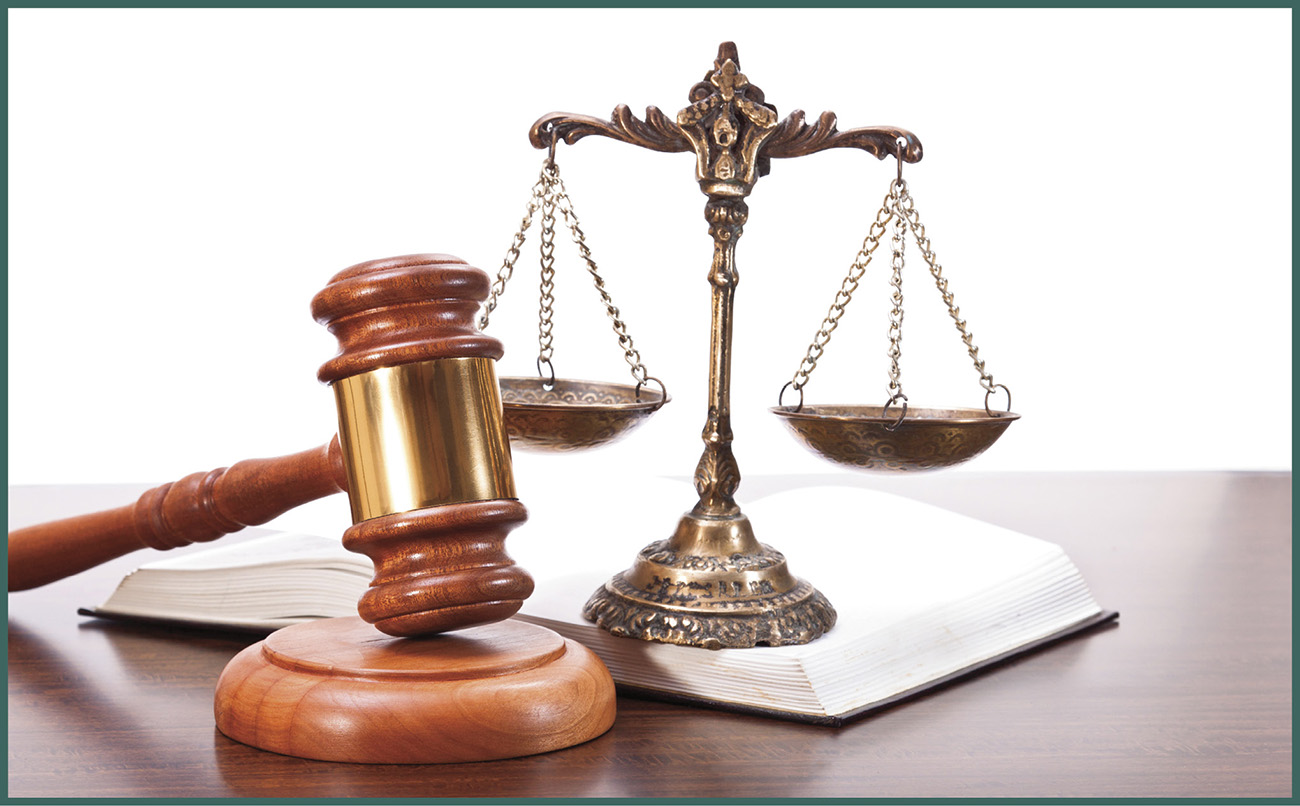
Who Can Run for Office?
Anyone can run for office in America. Well, almost anyone. To run for president, you have to be born in the United States. You must be at least 35 years old. You also must have lived in this country for at least 14 years.
To be a U.S. senator, you have to be a U.S. citizen for at least nine years. You must be at least 30 years old and live in the state you want to represent.
To be a U.S. representative, you must be a U.S. citizen for at least seven years. You have to be at least 25 years old and live in the state you want to represent.
Catherine Cortez Masto was sworn in as a senator for Nevada in 2003.
Chapter 2
Candidates and Campaigns
If youve watched TV during an election year, youve seen commercials about . A campaign is a series of activities that encourage citizens to vote for a certain politician.
Candidates campaign in many different ways. Their supporters put advertisements on TV, radio, and social media. Volunteers distribute flyers, buttons, T-shirts, and bumper stickers.
Many candidates tour the state or country and hold . During the rallies, candidates speak to crowds about what they will do if elected. Sometimes supporters speak at the rallies too. They tell the crowds why they support the candidate.
FACT
Candidates often have slogans. A slogan is a catchy phrase that sums up a candidates goal. In the 2016 presidential election, Donald Trumps campaign slogan was Make America Great Again! Slogans are printed on hats, shirts, and buttons for supporters to wear.
Candidates also participate in asks the candidates specific questions about issues that voters feel are important. The candidates take turns answering the questions. They are usually given a set amount of time to answer. Debates help voters understand each candidates plan and viewpoints. You may be able to attend the debates but most people watch them on TV or online.
Campaign Funding
Campaigns can be very expensive. A candidate may pay for some of his or her campaign. Citizens also donate money to candidates they believe in. Campaign funding also comes from political action committees, or PACs. PACs are created by political groups and large corporations. PACs donate money to candidates based on who they think will best serve their interests.
Political Parties
Most candidates running for office represent political parties. A political party is a group that stands for certain ideas and policies. Before from each state attend the convention.
These delegates vote for their partys candidate. Delegates base their votes on the winner of the primary election for their state. The candidate chosen at the convention is the presidential for that party.



